Description
ABSTRACT
Inherent Jurisdiction of Courts under Nigerian Law and Practice: A Lubricant in the Dispensation of Justice
Theophilus O. Ochonogor*
ABSTRACT
Courts in Nigeria are creations of the Constitution, which is the nation’s grundnorm. The Constitution grants the jurisdiction of the various courts. There are also statutes such as the Supreme Court Act, the Court of Appeal Act, the Federal High Court Act, and the various High Court Laws of the various states that make provisions for supplementary jurisdictions of the different courts. It is the law that a court is bound to act within its jurisdiction as expressly provided under the Constitution or other relevant statutes. The Constitution further provides that the powers of courts “shall extend, notwithstanding anything to the contrary in this Constitution, to all inherent powers and sanctions of a court of law.” This article discusses the concept of inherent jurisdiction, its meaning, nature and origin, its application under Nigerian law and practice, and how it has become a veritable lubricant in dispensing justice.
Keywords: Jurisdiction, inherent jurisdiction, inherent powers and sanctions of a court.
INTRODUCTION
The judicial powers of the Federal Republic of Nigeria and the component states of the federation are vested in the courts.1 The courts to which the judicial powers are vested are established under the Constitution of the Federal Republic of Nigeria, 1999 (as amended)2 (hereinafter referred to as “the Constitution”) and statutes. The Constitution and statutes also confer jurisdictions on each of the courts.3 Jurisdiction is the authority of a court to exercise judicial power, to hear and decide matters brought before it. In the case of Ibeanu v Ogbeide,4 Ogundere, JCA (as he then was) stated that jurisdiction “encompasses the constitutional, statutory and conventional basis for the exercise of a court’s jurisdiction within a prescribed geographical area or territory.” Thus, the constitutional or statutory provision on the jurisdiction of a court would usually prescribe the parties, subject matters and territory over which it should exercise authority and also state whether the court is to sit as a court of first instance and/or as an appellate court. The Constitution makes provisions for the
jurisdictions of the Supreme Court of Nigeria,5 the Court of Appeal,6 the Federal High Court,7 the High Court of States,8 and the National Industrial Court,9 inter alia. The Supreme Court Act,10
*LL.B, BL, MCArb.
- Constitution of the Federal Republic of Nigeria, 1999 (as amended), s 6(1) & (2).
- Constitution of the Federal Republic of Nigeria, 1999 (as amended), s 6(5).
- John Shoy Int’l Ltd V FHA [2016] 14 NWLR (Pt. 1533) 427 at 446[B]–[D] per Ogunbiyi, JSC; Garba v
Mohammed (2016)16 NWLR (Pt. 1537) 114 163[C]–[E]. Obiuweubi v CBN [2011] 7 NWLR (Pt. 1247)
465 at 506[A]–[B]. - [1994] LPELR – 14508 (CA) 14 -15.
- Constitution of the Federal Republic of Nigeria, 1999 (as amended), ss 232 &233.
- Constitution of the Federal Republic of Nigeria, 1999 (as amended), ss 239 – 246.
- Constitution of the Federal Republic of Nigeria, 1999 (as amended), s 251.
- Constitution of the Federal Republic of Nigeria, 1999 (as amended), s 272.
- Constitution of the Federal Republic of Nigeria, 1999 (as amended), s 254C.
- Supreme Court Act, ss 16 – 22

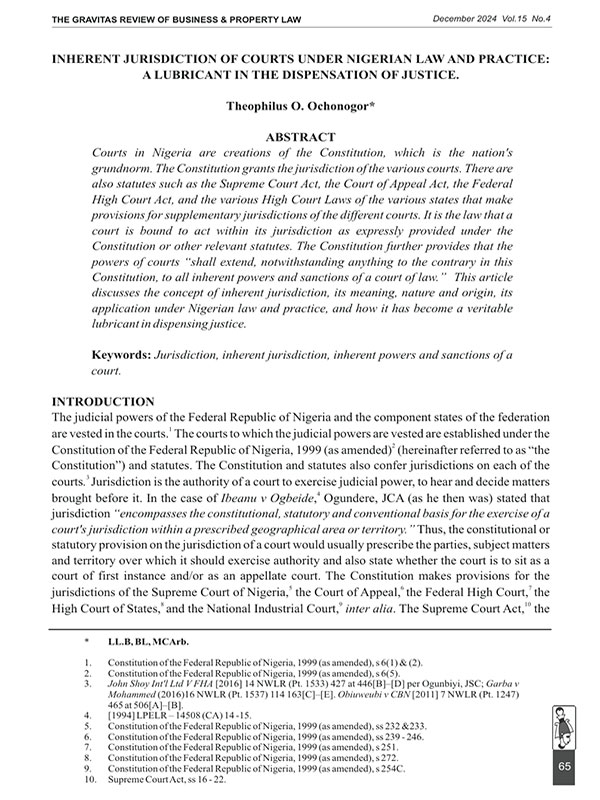
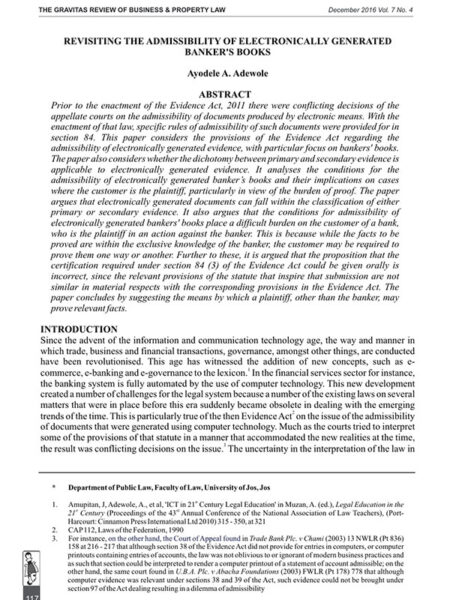
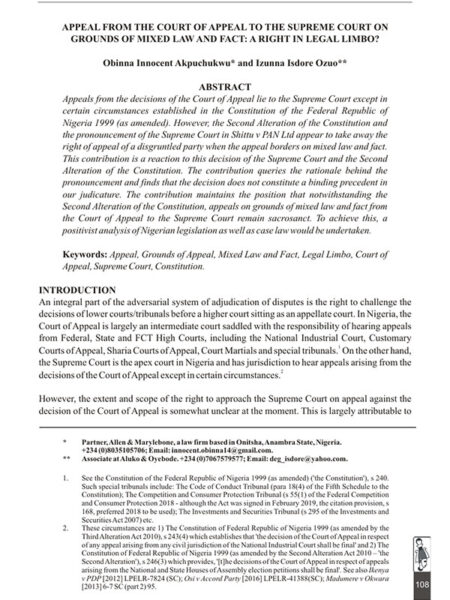
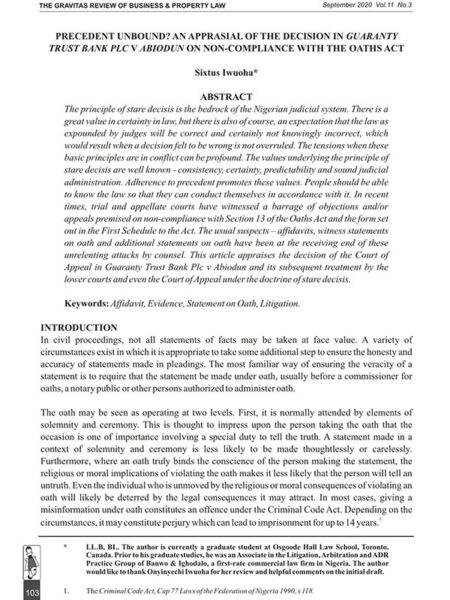
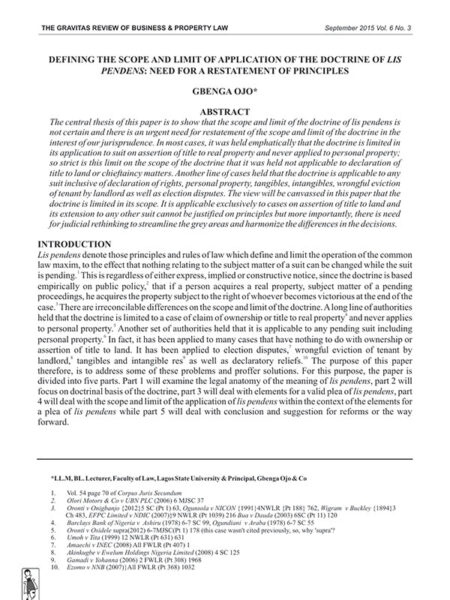


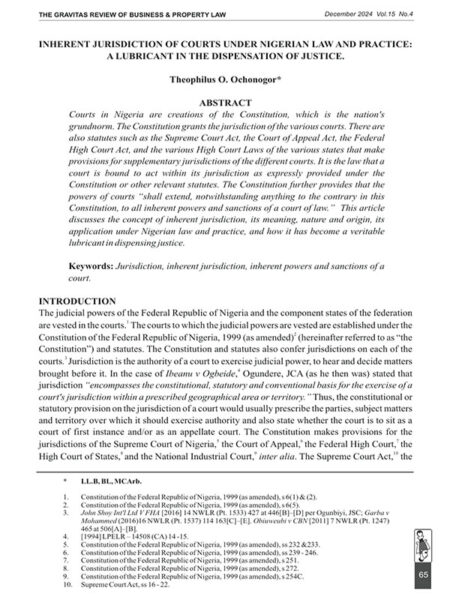
Reviews
There are no reviews yet.